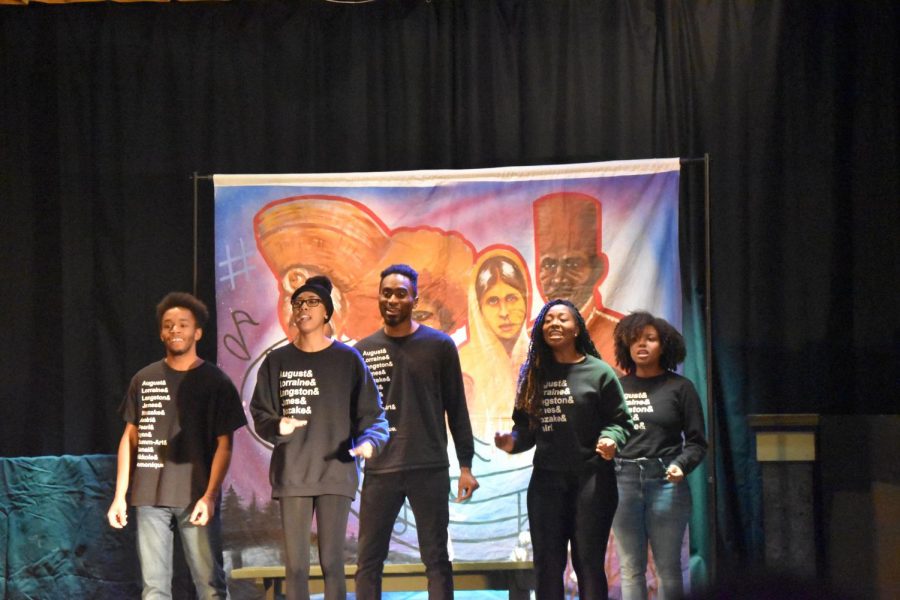More than just a month: Black history deserves a spot in everyday curriculum
Actors from the Black Rep, an African American theatre group, preform for students in the little theatre on February 19th.
March 3, 2020
Since black history is not included in traditional high school curricula, it has become more and more prevalent to celebrate black history throughout the month of February.
In fact, some high schools across the country are requiring a course in black history because the content typically presented in English and social studies class, for instance, is too narrow-minded.
According to Time Magazine, Martin Luther King Jr. said black stories often end up being told through a white lens.
“If the first time that black people enter the school curriculum is through when they’re enslaved, that gives the impression these particular people were not that important to American democracy and didn’t contribute to the intellectual development of the country,” King once said.
Samuel Martin, dean of students, believes that the contributions that black people have made should be integrated into the school’s current curriculum and not be offered as an individual required class for students.
“A better question for me would be, ‘do I think that we should make sure that contributions from black folks are acknowledged and celebrated in our current curriculum?’” Martin said.
Students value their electives and it would be a disappointment to take one away for a required course that they may not be interested in.
“I do not believe that the school should force people to take on those kind of courses if they don’t want to because the courses that people take are pretty dependent on things that they want to do, so trying to force somebody to do one specific thing is not something that I would support,” Caleb Williams, sophomore, said.
Christina Sneed, English teacher, thinks black history should already be included in all of the classes that students are taking, so there won’t be any need for there to be an individual class.
“I think that there should be African literature and African American incorporated into all content areas. You shouldn’t have a separate class to take for that because it should be integrated into the course work in all of the classes,” Sneed said. “Just like we read Shakespeare, who is British, why don’t we read Langston Hughes and James Baldwin? Why don’t we read about all of these different people who impacted our literature and our society on a regular basis? Why does it have to be restricted to a specific course?”
Expanding black history from a month-long focus to teaching it alongside everything else seems a natural choice.
“I believe that everyone should acknowledge the things that black people have done and should probably want to learn more about history not just black history but also history of all culture,” Williams said. “So that we can familiarize ourself with similarities and differences that we share with other people and help bridge the gap between cultures.”
































